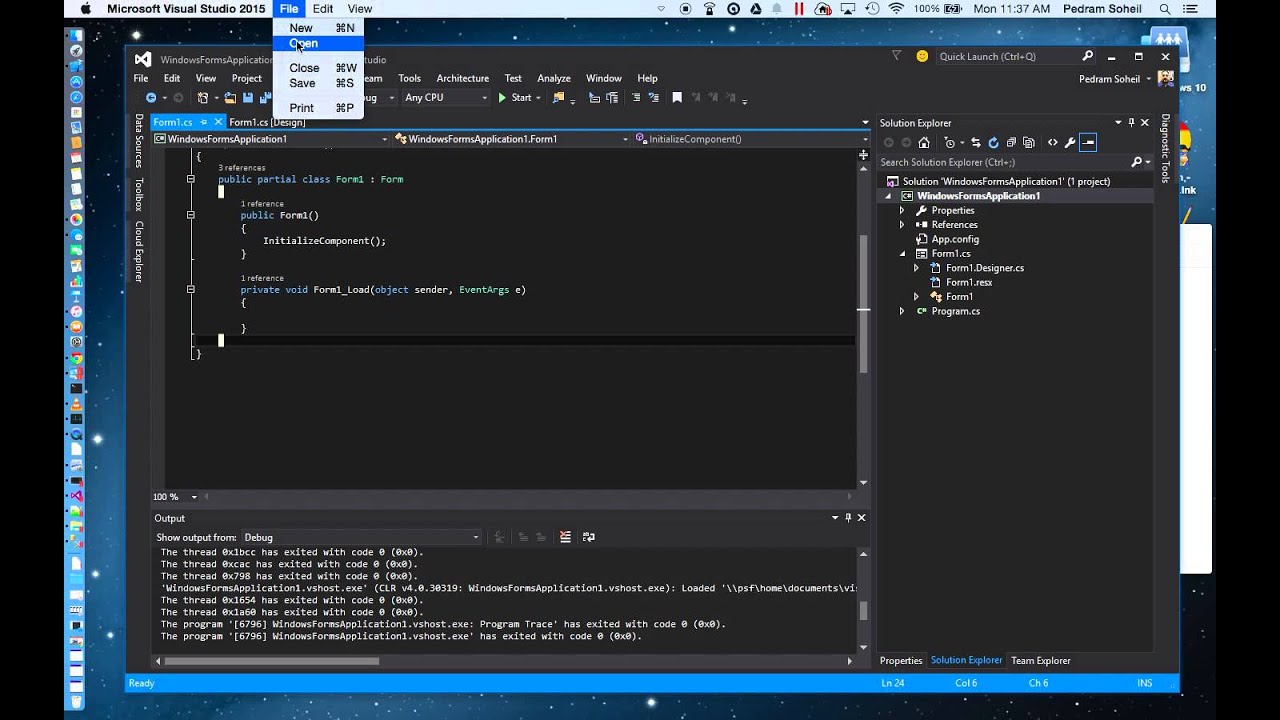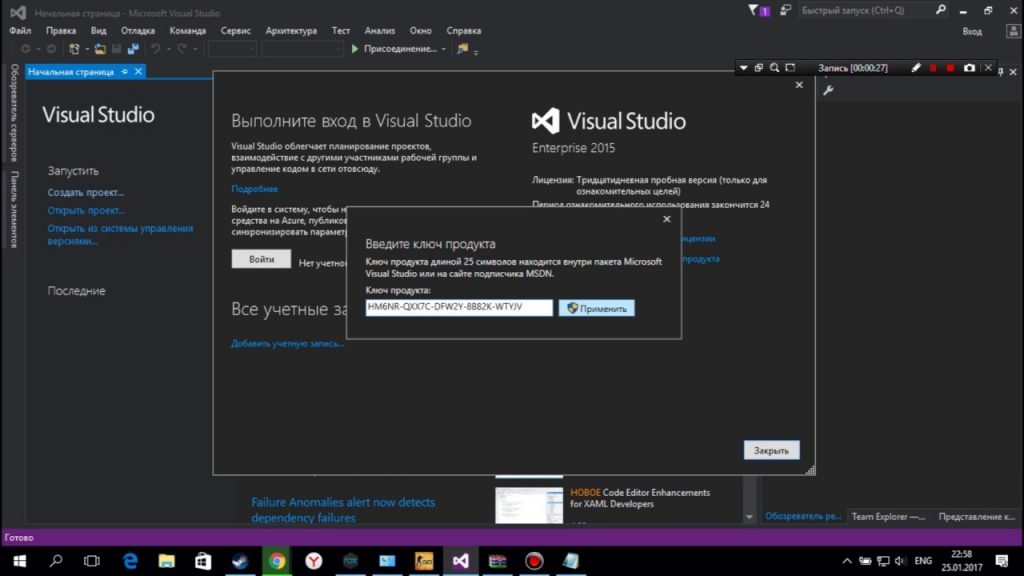
- Visual studio for mac compiler code#
- Visual studio for mac compiler iso#
- Visual studio for mac compiler plus#
- Visual studio for mac compiler windows#
Note: Effective with the PGI 2016 release, the PGI C++ compiler is no longer supported on Microsoft Windows.Īll PGI products include the OpenMP and OpenACC parallel PGI Performance Profiler. PGI Fortran supports the industry standard ISO_C_BINDING, which allows for easy argument passing and procedure invocation between Fortran, C, and C++.

The PGI C++ compiler is substantially compatible with GNU g++ releases through GCC 8.1. Both compilers implement OpenMP 4.5 pragma-based parallel programming for multicore CPUs, and OpenACC 2.6 pragma-based parallel programming for CPUs and NVIDIA GPUs. PGI C and C++ are native parallelizing/optimizing ANSI C11 and GNU-compatible C++17 compilers.

The PGI Fortran compiler includes CUDA Fortran extensions targeting NVIDIA CUDA-enabled GPUs. As I tried to explain, this is quite feasible.PGI Fortran is a native parallelizing/optimizing Fortran 2003 compiler with support for OpenMP 4.5 directive-based parallel programming for multicore CPUs, and OpenACC 2.6 directive-based parallel programming for CPUs and accelerators. If you used to Windows, it’s much better to stay with it and prefer multi-OS UI. I would not advice you to switch to Linux completely. Maybe, you did not even hope for multi-platform application. For native (but portable) project you would need to recompile it all in each platform, of course.NET/Mono complies in byte-code (IL) and finally compiles for native CPU codes only during run-time, on per-method basis. I do this, and my applications are run on Linux without recompilation.
Visual studio for mac compiler plus#
NET/Mono, you also should choose from the same platforms, plus you can develop using. I cannot advise which one to pick up for native platform as I moved to managed long time ago and never developed with Qt, Gtk, Gnome or something like that (I developed on Linux long time ago, before those APIs were created and later developed only for Mono). First you need to choose main platform for UI application: managed or native and for native, chose from Qt or Gtk.
Visual studio for mac compiler windows#
You can do all development on Windows and test it on Linux (or other OS) on a regular basis.
Visual studio for mac compiler code#
You certainly need to keep all your universal and application-specific code in its native form and isolated from UI. This approach will be the most convenient for you. What can you do now? You can start Linux-ready development using Windows. NET applications using P/Invoke, 2) Mixed-mode (managed+unmanaged) C++ and C++/CLI project which can mix up two words an easily interoperate in the same project and same executable module it would be able to play dual role: main module of. NET + native C++ in two ways: 1) Native C++ DLLs linked to.

If you did so, you would be Linux-ready by now. So, you could do Windows + Linux + Mac +more development in first place if you used from the very beginning for UI one of the following: Qt, Gtk+.
Visual studio for mac compiler iso#
NET (on Windows), Mono - many other platforms).NET/Mono is based in CLI, ECMA and ISO standard, so this is most solid, but this is much more than UI, this is manages memory, IL JIT-compiled code, lots of goodies, big part if it is Windows-specific, but even non-standard parts are vastly supported by Mono.NET/Mono can use shared libraries written on native platform, so this will work for you. Answering the follow-up Question: new UI for Windows, Linux and Mac.įirst, there are several different platforms for Linux all is based on X-Windows, on top of it there is one or another Windows Manager with their APIs (KDE, Gnome), there is multi-platform Qt and Gtk+ (both available on Windows as well, can be a good point for your) and finally, and CLI-based.


 0 kommentar(er)
0 kommentar(er)
